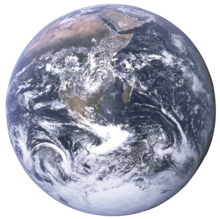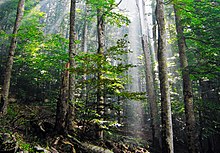Deep Ecology Movement Paperback – 15 July 2011
by Alan Drengson (Author), Yuichi Inoue (Author)
4.0 out of 5 stars 7 ratings
See all formats and editions
Tankobon Hardcover
$107.01
1 New from $107.01
Deep ecology, a term coined by noted Norwegian philosopher Arne Naess, is a worldwide grassroots environmental movement that seeks to redress the shallow and piecemeal approache of technology-based ecology. Its followers share a profund respect for the earth's interrelated natural systems and a sense of urgency about the need to make profound cultural and social changes in order to respore and sustain the long-term health of the planet. This comprehensive introduction to the Deep Ecology movement brings tgether Naess' groundbreaking work with essays by environmental thinkers and activists responding to and expanding on its philosophical and practical aspects.Contributors include George Sessions, Gary Snyder, Alan Drengson, Dll Devall, Freya Matthews, Warwick Fox, David Rothenberg, Michael E. Zimmerman, Patsy Hallen, Dolores LaChapelle, Pat Fleming, Joanna Macy, John Rodman, and Andrew Mclaughlin. The Authrs offer diverse viewpoints- from ecofeminist, scientific, and purely philosophical approaches to Christian, Buddhist, and Gandhian-based principles. Their essays show how social, technological, psychological, philosophical, and institutional issues are aall fundamentally related to our attitudes and values toward the natural world.
FREE expedited delivery and up to 50% off RRP on select top books.
Explore our selection of bestsellers, new releases, children's books, fiction, non-fiction, cookbooks and more. T&Cs apply. Shop now
Frequently bought together
Deep Ecology Movement
+
The Ecology of Wisdom: Writings by Arne Naess
+
Ecology, Community and Lifestyle: Outline of an Ecosophy
Total Price: $161.05
Add all three to Cart
Some of these items ship sooner than the others. Show details
Buy the selected items together
This item:Deep Ecology Movement by Alan Drengson Paperback $42.78
The Ecology of Wisdom: Writings by Arne Naess by Arne Naess Paperback $42.78
Ecology, Community and Lifestyle: Outline of an Ecosophy by Arne Naess Paperback $75.49
Customers who bought this item also bought
Page 1 of 5Page 1 of 5
This shopping feature will continue to load items when the Enter key is pressed. In order to navigate out of this carousel please use your heading shortcut key to navigate to the next or previous heading.
Back
The Ecology of Wisdom: Writings by Arne Naess
The Ecology of Wisdom: Writings by Arne Naess
Arne Naess
4.8 out of 5 stars 14
Paperback
$42.78
Only 1 left in stock.Only 1 left in stock.
Deep Ecology for the Twenty-First Century: Readings on the Philosophy and Practice of the New Environmentalism
Deep Ecology for the Twenty-First Century:…
George Sessions
4.1 out of 5 stars 10
Paperback
$15.72
Only 2 left in stock.Only 2 left in stock.
The Body of God
The Body of God
Sallie McFague
4.9 out of 5 stars 13
Paperback
$38.49
Only 1 left in stock.Only 1 left in stock.
Thinking Like a Mountain: Towards a Council of All Beings
Thinking Like a Mountain: Towards a Council of All Beings
John Seed
4.2 out of 5 stars 12
Paperback
$27.86
Universe Story
Universe Story
Thomas Berry
4.4 out of 5 stars 38
Paperback
$26.62
Only 3 left in stock.Only 3 left in stock.
Next
Tell the Publisher!
I’d like to read this book on Kindle
Don't have a Kindle? Get your Kindle here, or download a FREE Kindle Reading App.
FREE expedited delivery and up to 50% off RRP on select top books.
Explore our selection of bestsellers, new releases, children's books, fiction, non-fiction, cookbooks and more. T&Cs apply. Shop now
Product details
Paperback : 328 pages
ISBN-10 : 1556431988
ISBN-13 : 978-1556431982
Dimensions : 15.24 x 1.85 x 22.86 cm
Publisher : NORTH ATLANTIC; 1st edition (15 July 2011)
Language: : English
Best Sellers Rank: 373,762 in Books (See Top 100 in Books)
1,337 in Ecology (Books)
1,990 in Environmental Science (Books)
2,081 in Environmental Geology
Customer Reviews: 4.0 out of 5 stars 7 ratings
Customers who viewed this item also viewed
Page 1 of 3Page 1 of 3
This shopping feature will continue to load items when the Enter key is pressed. In order to navigate out of this carousel please use your heading shortcut key to navigate to the next or previous heading.
Back
The Ecology of Wisdom: Writings by Arne Naess
The Ecology of Wisdom: Writings by Arne Naess
Arne Naess
4.8 out of 5 stars 14
Paperback
$42.78
Only 1 left in stock.Only 1 left in stock.
Ecology, Community and Lifestyle: Outline of an Ecosophy
Ecology, Community and Lifestyle: Outline of an…
Arne Naess
3.8 out of 5 stars 5
Paperback
$75.49
Usually dispatched within 1 to 3 weeks.Usually dispatched within…
New Ecological Order
New Ecological Order
Luc Ferry
3.9 out of 5 stars 5
Paperback
$33.76
Usually dispatched within 1 to 2 months.Usually dispatched within…
Deep Ecology for the Twenty-First Century: Readings on the Philosophy and Practice of the New Environmentalism
Deep Ecology for the Twenty-First Century:…
George Sessions
4.1 out of 5 stars 10
Paperback
$15.72
Only 2 left in stock.Only 2 left in stock.
Deep Ecology: Living as If Nature Mattered
Deep Ecology: Living as If Nature Mattered
Bill Devall
4.4 out of 5 stars 9
Paperback
$31.71
Usually dispatched within 4 to 5 days.Usually dispatched within…
Next
Sponsored
Customer reviews
4.0 out of 5 stars
4 out of 5
7 global ratings
5 star
60%
4 star
20%
3 star 0% (0%)
0%
2 star 0% (0%)
0%
1 star
20%
How are ratings calculated?
Review this product
Share your thoughts with other customers
Write a customer review
Sponsored
Top reviews
Top reviews
Top reviews from Australia
There are 0 reviews and 0 ratings from Australia
Top reviews from other countries
Translated by Amazon
See original
julian ortleb
5.0 out of 5 stars Versatile and inspiring
Reviewed in Germany on 18 November 2014
Verified Purchase
Very successful compilation of basic texts on depth ecology, which go both in breadth and depth. Most of them written in academic style, so English skills are required. Nevertheless, the lyrics are not dry, but really inspiring. Many important and wise considerations, according to which we would ideally all align our lives.
One person found this helpful
Report abuse
Translated from German by Amazon
See original ·Report translation
Arkady
5.0 out of 5 stars Five Stars
Reviewed in the United States on 23 January 2016
Verified Purchase
great
Report abuse
Jane Johnson
5.0 out of 5 stars The Deep Ecology Movement
Reviewed in the United States on 11 September 2013
Verified Purchase
Great to Deepen your experience and awareness of all things Ecolo - from the beginning to the now and onward, be it! be in it!
4 people found this helpful
Report abuse



 Save
Save


